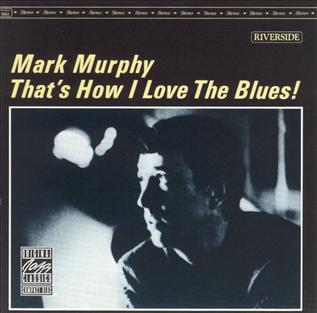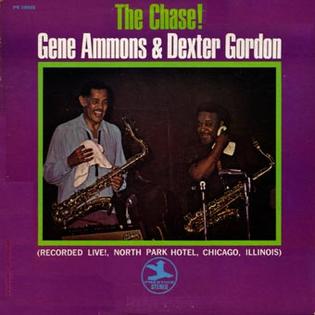Easy listening is a popular music genre and radio format that was most popular during the 1950s to the 1970s. It is related to middle-of-the-road (MOR) music and encompasses instrumental recordings of standards, hit songs, non-rock vocals and instrumental covers of selected popular rock songs. It mostly concentrates on music that pre-dates the rock and roll era, characteristically on music from the 1940s and 1950s. It was differentiated from the mostly instrumental beautiful music format by its variety of styles, including a percentage of vocals, arrangements and tempos to fit various parts of the broadcast day.

William Clarence Eckstine was an American jazz and pop singer and a bandleader during the swing and bebop eras. He was noted for his rich, almost operatic bass-baritone voice. In 2019, Eckstine was posthumously awarded the Grammy Lifetime Achievement Award "for performers who, during their lifetimes, have made creative contributions of outstanding artistic significance to the field of recording". His recording of "I Apologize" was given the Grammy Hall of Fame Award in 1999. The New York Times described him as an "influential band leader" whose "suave bass-baritone" and "full-throated, sugary approach to popular songs inspired singers like Earl Coleman, Johnny Hartman, Joe Williams, Arthur Prysock, and Lou Rawls."

Tadley Ewing Peake Dameron was an American jazz composer, arranger, and pianist.
Helen Merrill is an American jazz vocalist. Her first album, the eponymous 1954 recording Helen Merrill, was an immediate success and associated her with the first generation of bebop jazz musicians. After an active 1950s and 1960s, Merrill spent time recording and touring in Europe and Japan, falling into obscurity in the United States. In the 1980s and 1990s, she was recorded by EmArcy, JVC and Verve, and her performances in America revived her profile.

The Count Basie Orchestra is a 16- to 18-piece big band, one of the most prominent jazz performing groups of the swing era, founded by Count Basie in 1935 and recording regularly from 1936. Despite a brief disbandment at the beginning of the 1950s, the band survived long past the big band era itself and the death of Basie in 1984. It continues under the direction of trumpeter Scotty Barnhart.

"Call It Stormy Monday (But Tuesday Is Just as Bad)" (commonly referred to as "Stormy Monday") is a song written and recorded by American blues electric guitar pioneer T-Bone Walker. It is a slow twelve-bar blues performed in the West Coast blues-style that features Walker's smooth, plaintive vocal and distinctive guitar work. As well as becoming a record chart hit in 1948, it inspired B.B. King and others to take up the electric guitar. "Stormy Monday" became Walker's best-known and most-recorded song.

Here's the Man!!! is the second studio album by Bobby Bland, released in 1962. It was issued in standard mono, as well true stereo and was the first Duke album issued in the stereo format. Even though the previous album, Two Steps from the Blues remains available on CD, this album hasn't been available in its entirety since 1988.

Guy Eckstine is an artist manager and record producer, known for his tenure as A&R executive at Verve Records in the 1990s. With jazz keyboardist Herbie Hancock, Eckstine co-produced the Hancock album The New Standard.
"What a Little Moonlight Can Do" is a popular song written by Harry M. Woods in 1934. In 1934, Woods moved to London for three years where he worked for the British film studio Gaumont British, contributing material to several films, one of which was Road House (1934). The song was sung in the film by Violet Lorraine and included an introductory verse, not heard in the version later recorded by Billie Holiday in 1935.

Once More with Feeling is a 1960 studio album by the American singer Billy Eckstine. It was arranged by Billy May and produced by Teddy Reig.

Imagination is a 1958 album recorded by Billy Eckstine. It was released under the EmArcy label.

Billy Eckstine Sings with Benny Carter is a 1986 album by the American singer Billy Eckstine, accompanied by the alto saxophonist Benny Carter. The singer Helen Merrill appears in duet with Eckstine on the first and last songs of the album. This was Eckstine's only LP released on Verve Records, and marked his final album recordings.
Rhythm in a Riff is a 1947 medium length musical film produced by William D. Alexander and directed by Leonard Anderson. The film stars Billy Eckstine and his band performing as well as Ann Baker, Hortense Allen Jordan, Sarah Harris, and Emmett "Babe" Wallace. The film is extant. The film was.made in New York City. It was released by Astor Pictures. The film was targeted to am African American audience, features an African American cast, and was produced and directed by African Americans. The film is also known as Flicker Up.

Dizzy Gillespie at Newport is a 1957 live album by Dizzy Gillespie, featuring his big band, recorded at the 1957 Newport Jazz Festival.

Dizzy in Greece is an album by trumpeter Dizzy Gillespie, recorded in 1956 and 1957 and released on the Verve label. The album was reissued as part of the 2CD compilation Birks Works: The Verve Big Band Sessions.

That's How I Love the Blues! is an album by American jazz vocalist Mark Murphy featuring tracks recorded in late 1962 for the Riverside label.

The Chase! is a live album by the saxophonists Dexter Gordon and Gene Ammons recorded in Chicago in 1970 and released on the Prestige label.

Now Singing in 12 Great Movies is a 1963 studio album by the American singer Billy Eckstine. It was arranged by Billy Byers, conducted by Bobby Tucker, and produced by Quincy Jones.

The Clarke/Duke Project II is the second collaborative album by American musicians Stanley Clarke and George Duke. It was released in 1983 through Epic Records. The album peaked at number 146 on the Billboard 200 and at number 44 on the Top R&B/Hip-Hop Albums chart.
Joseph P. Lippman was an American composer, arranger, conductor, pianist, and songwriter working in jazz and traditional pop. His musical career was over five decades long, having started at age 19 with the Benny Goodman orchestra in 1934 and writing for television, films, and Broadway in the 1980s. He composed and arranged for Bunny Berigan, Jimmy Dorsey, Sarah Vaughan, Charlie Parker and worked as staff arranger in television for Perry Como and Hollywood Palace.















